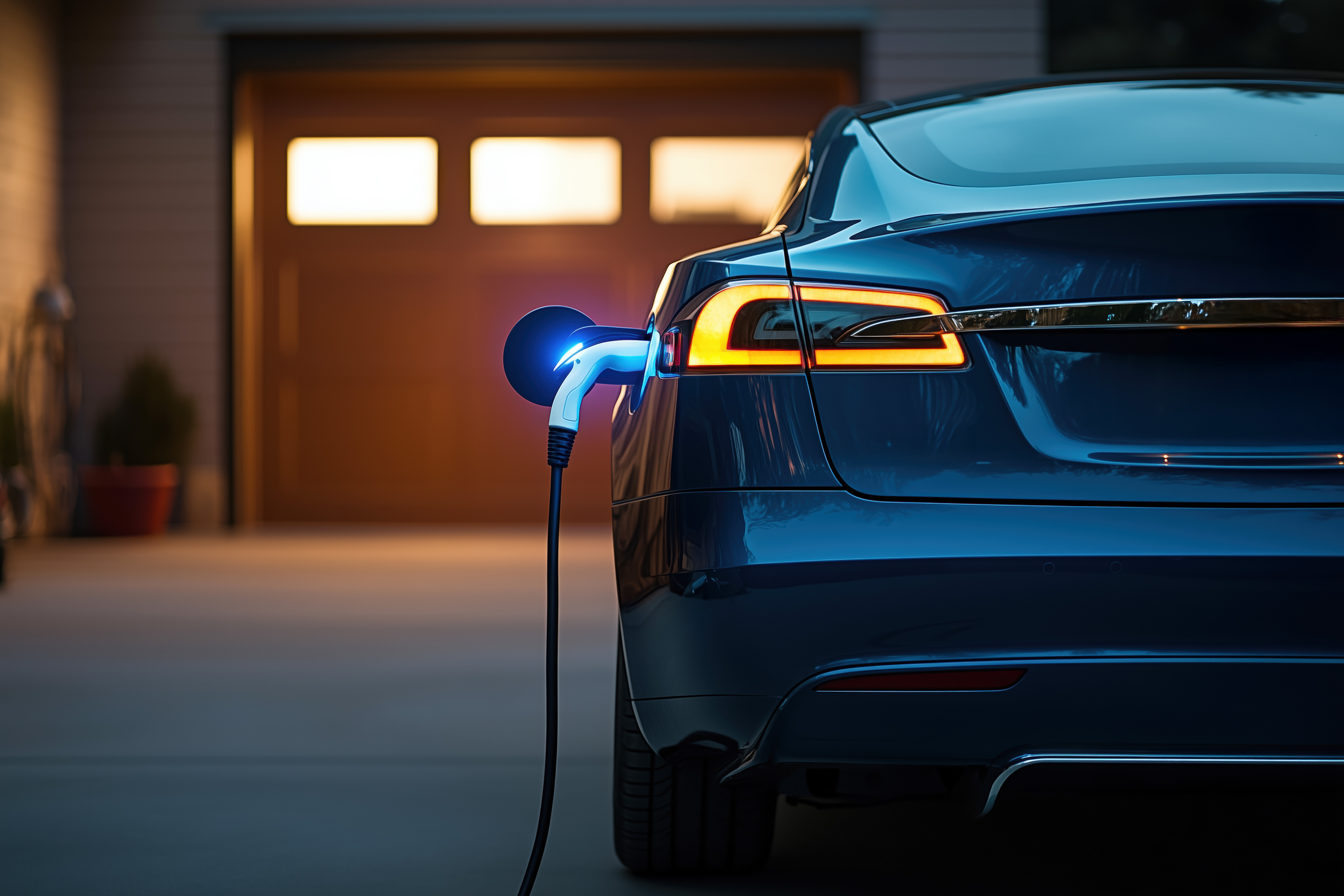As gas prices continue to fluctuate, more drivers are considering switching to an electric vehicle (EV). Whether you want to reduce your carbon footprint or limit your car maintenance bills (or both), it’s important to understand electric car costs upfront and in the long term, including any hidden costs of owning an electric car.
{{CTA-EV-to-Solar}}
The Cost of Electric Cars
The initial purchase price of an EV varies widely depending on the model. Affordable options, like the Nissan Leaf and the MINI Cooper Electric Hardtop, start at under $30,000, while luxury electric SUVs can cost well over $100,000.
Even though most electric car prices are higher than their traditional gas-powered counterparts, that price difference is shrinking each year as technology advances, and EVs become more readily available. According to Kelley Blue Book, the average price of an EV in 2022 was just over $56,000, about $10,000 more than the overall national average of vehicles in general.
In Texas, the costs of electric cars tend to be lower, with the average price of a used EV at $40,902, and many used vehicles available are only a few years old.
Today, new electric models are available in every type of vehicle, from your standard sedan to SUVs, luxury cars, and even pickup trucks. Standard electric cars remain the cheapest option, generally ranging from $25,000 to $40,000, while SUVs and trucks are on the higher end of the spectrum.
If you still want to cut down on your gas usage but don’t want to invest in a fully electric vehicle, you may want to consider hybrid cars.
Related: Check out our tips on choosing the right EV for you.
Tax Credits and Incentives for EVs
Federal, state, and local tax credits and incentives are available to help offset the higher initial price of an electric car. The federal government offers a tax credit worth $2,500 to $7,500 for newly purchased EVs, and many local electricity providers offer incentives and credits.
Texas also has an incentive program, which offers a rebate of up to $2,500 for eligible battery-electric vehicles (BEVs).
Is an Electric Car Cheaper to Own?
In addition to saving on gas, EVS also have fewer moving parts, requiring less maintenance overall than a car with an internal combustion engine. On average, EV drivers tend to spend 60% less than those who own gas-powered vehicles.
As EVs become more common in the U.S., electric car prices are likely to continue to decrease, making these cars a more affordable option for many drivers. Federal, state, and local incentives and credits can help defray the initial purchase cost, allowing consumers to enjoy the many benefits of owning and driving electric vehicles.
Related: Compare gas vs. electric cars.
Costs of Charging an EV
And when it comes to the cost to charge an electric car, electricity prices in Texas are more than twice as cheap as gas and tend to be more consistent than constantly shifting oil prices. Remember that charging can be less convenient if you don’t invest in an at-home charging port and instead must rely on public charging stations.
While most charging stations are located in major cities, Texas will continue to expand charging availability thanks to the Infrastructure Investment and Jobs Act, which will provide the state with $408 million to create more infrastructure for EVs.
Should I Buy or Lease an Electric Car?
While the cost of electric cars makes purchasing an EV a larger upfront investment, buyers can take advantage of tax credits and incentives, whereas leasers may not enjoy those benefits. However, leasing an EV could let you take advantage of the quickly changing and improving technology, making it easier to upgrade to the latest model.
Final Thoughts About the Cost of Electric Cars
Whether you make the switch to an electric car depends largely on your driving habits and lifestyle. The electric car cost is well worth the investment for drivers who own their homes and have the funds to invest in a personal charging station or only drive short distances.
Electric cars offer significant benefits over gas-powered vehicles to the environment and your budget. Even with a higher initial purchase price, EVs are more cost-effective to maintain and cheaper to refuel.
Learn more about how you can partner with Gexa Energy to power your home with 100% green energy and save on your EV charging with an at-home charging station.
Gexa Energy provides Texas homeowners with 100% green energy plans* powered by renewable sources. Join us in building a cleaner, more reliable future for the planet.






































